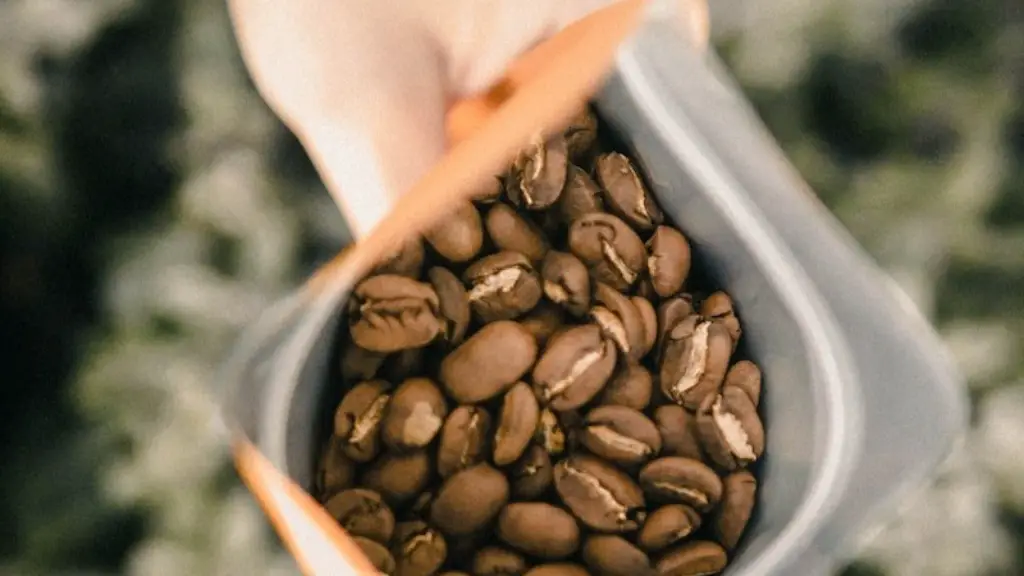Coffee is one of the most widely consumed beverages in the world, loved for its ability to give us a quick source of energy and boosted productivity. Whether it’s for an afternoon pick-me-up or an early morning necessity, it’s not uncommon for coffee drinkers to have up to three or more cups of coffee a day. But what happens when the daily coffee ritual is suddenly gone?
For many, breaking the daily coffee habit is uncomfortable. From caffeine-dependent headaches to accompanying feelings of exhaustion, it’s typical to experience a withdrawal period. The actual physiological effects, however, are less severe than with other substances like drugs, alcohol, or smoking cessation.
To better understand the effects, experts point to a portion of the brain called the adenosine receptors. This structure helps to regulate wakefulness and sleep. Caffeine binds with adenosine receptors, blocking the sleep-inducing effect of the neurotransmitter. As caffeine levels drop, adenosine takes full effect, leading to an increase in fatigue.
It’s also important to note that some of the side effects experienced when quitting coffee may not be related to caffeine withdrawals at all. Research suggests that switching from drinking coffee can lead to dehydration, as we often get energy from the natural water our bodies need from this form of fluid. Other commonly reported complaints include changes to our digestive system and mood.
Due to the various factors at play, the timeline for recovering from quitting coffee can vary dramatically from one individual to the next. On average, however, it tends to take about one to four days for the pain to pass. During that time, experts recommend abstaining from caffeine completely, as even one cup can start the cycle all over again.
Those apprehensive about quitting coffee may want to consider reducing their caffeine intake gradually instead. Cutting back by one cup a day can help minimize the effects and make the transition easier. There’s also the option of trying alternatives that don’t contain caffeine. Yerba Mate, for example, has been found to be an excellent source of energy that doesn’t come with any of the negative side effects associated with coffee.
Whatever approach you take, it is important to take time to recognize the changes in behavior and energy levels that quitting coffee can bring. While the initial effects of decreased alertness and higher levels of fatigue can be difficult to get used to, emerging on the other side can bring renewed appreciation for the value of rest and a better understanding of our own levels of energy.
Nutrition and Hydration
In addition to removing caffeine from your daily routine, it is important to be mindful of what we SHOULD be consuming while going through the withdrawal period. Every individual is different, but research suggests that proper nutrition and hydration may help to prevent more serious symptoms. The absence of good nutrition is one of the biggest factors leading to headaches and various other physical ailments.
Incorporating more fresh vegetables and fruits into your diet, for instance, can help speed up the recovery process. An increased intake of dietary fiber can also help to enhance feelings of fullness as well as regulate the digestive system. Healthy fats, such as those found in nuts, avocados, and some fish, play an important role in supporting the body and providing it with the energy it needs to function properly.
While making sure to consume enough food, it’s equally important to remain properly hydrated. Dehydration is a common side effect of quitting coffee, due to the fact that we often fill up on coffee instead of water. It’s important to drink six to eight glasses of water per day to help keep the body hydrated and running optimally. Replacing coffee with caffeinated teas or herbal teas can also help to cut down on dehydrating effects.
In addition to adequate hydration, there are also supplements available that can provide an extra boost of energy. Maca has been found to not only deliver the energy needed to keep going, but also to balance hormone levels for improved mental clarity. Ginseng can also give the body an extra kick whilst providing more sustained energy over time.
Of course, it is important to ensure that any supplements taken are appropriate for the individual, in order to avoid any unwanted side effects. Experts advise the best approach is to first consult a physician or nutritionist before introducing these into your daily routine.
Nutritional Deficiency
One of the biggest issues associated with quitting coffee is that some individuals overlook the need for good nutrition. The sudden absence of coffee can sometimes lead to nutritional deficiencies, which can then further impede the body’s ability to recover and cope with lifestyle changes. Iron, for instance, is one of the most commonly overlooked deficiencies. A lack of adequate iron can lead to feelings of exhaustion and fatigue, making it even more difficult to adjust to the new lifestyle.
Vitamin D is another nutrient that needs special attention. Not only does it act as a sleep aid, but it is also important for moderate blood pressure and regulating hormones. A lack of this essential vitamin can contribute to an increased risk of depression, anxiety and other chronic health conditions.
Finally, some individuals may experience low levels of magnesium when they decrease their coffee intake. Not only can this lead to cramping muscles and nerve issues, but can also trigger migraines. Magnesium helps to regulate neurotransmitter activity along with calcium, aiding in the increase of concentration and focus.
Ensuring that you are consuming adequate vitamins and minerals is one of the best ways to manage the withdrawal symptoms and help you get back to a healthy lifestyle. Sources like leafy greens, nuts, seeds, eggs, and fish provide our bodies with a wide range of essential nutrients.
Physical Activity and Sleep Hygiene
Of course, nutrition isn’t the only aspect of general health that needs to be taken into consideration. Exercise plays an equally important role in the recovery process. Whilst increased physical activity isn’t a cure for the withdrawal period, it can help to increase the level of alertness and reduce feelings of fatigue. This could involve anything from regularly taking a walk to joining a gym with guided fitness classes.
Sleep hygiene is also important. This means creating an environment that supports healthy sleep patterns. It’s important to go to bed and wake up around the same time every day and avoid screens and other electronic components in the bedroom. Alcohol and caffeinated beverages should also be avoided close to bedtime, as these can restrict the duration or quality of sleep.
In addition to the above, breathing techniques can also help to reduce stress levels and encourage relaxation. From long, slow breaths during yoga to counting breaths while meditating, there are many ways to bring the body into ‘rest and digest’ mode. This further helps to promote a good night’s rest.
Overall, quitting coffee can be a challenging process for many. Not only can the sudden reduction of caffeine cause physical pains and exhaustion, there can also be underlying factors such as nutritional deficiencies and sleep deprivation to consider. By properly managing the withdrawal period, however, individuals can come out the other side with renewed energy and appreciation for the value of rest.
Alternative Beverages
When quitting coffee, some individuals may struggle to find an alternative that is both satisfying and energizing. Fortunately, there are several beverages available today that do not contain caffeine and are an excellent source of natural energy. From green and herbal teas to naturally caffeine-free coffee substitutes, there is something suitable for everyone’s taste.
Yerba mate gourds, for instance, are known for providing an energizing effect without any of the detrimental side effects associated with coffee or excessive caffeine consumption. This South American beverage is technically classified as a tisane, which is different from regular coffee or tea in that it does not contain either coffee beans or tea leaves. It is also an excellent source of antioxidants, vitamins and minerals.
Another excellent choice is matcha green tea powder. Unlike regular green tea, where the tea leaves are removed once steeped, matcha is whole leaves that are immersed in hot water and then consumed. Matcha is an excellent source of energy, as well as important vitamins and minerals. It contains theanine, an amino acid derivative that can help to fight fatigue and stress.
For those who prefer the taste of coffee, there are also a few options that provide the flavor and subtleties of coffee without any of the damaging side effects. Chicory root, for example, is popular, as it has a similar taste to coffee but without any of the caffeine, making it a great choice when quitting coffee.
Of course, it’s a personal journey and individuals should take the time to find an alternative that works for them. Coffee alternatives, like those above, may just be the answer. They can help individuals to break their addiction to caffeine and begin to appreciate the energizing effects of natural foods and beverages.





